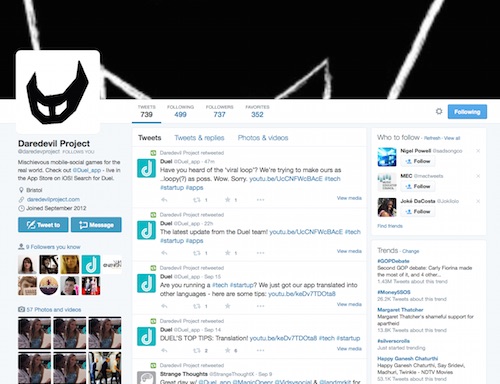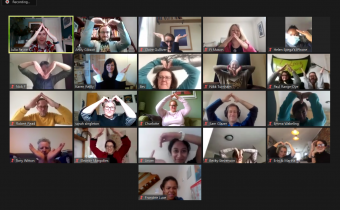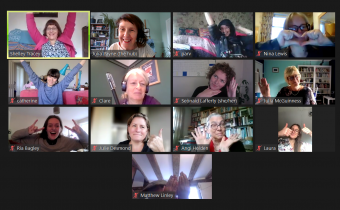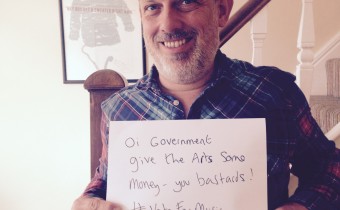Social Media: how important is it, really?
Duel’s Jon Aitken blogs on why social media should be a vital part of your start-up development
Do you need a social media presence for your brand or product?
Yes. The answer is always yes.
What kind of presence can be a more difficult question, and one that revolves around several factors: the resources you have at your disposal, how much time can you dedicate to social media and, most importantly, your audience – lets talk about them for a bit.
Who are they? Are they young, middle-aged or both? Do they access social media for information or simply to share a Minion-related meme? Profile your audience and look at who they choose to follow and think about why.
We’re currently launching a new app called Duel, which is targeted at 16-25 year olds, therefore our users are incredibly tech/internet savvy. They’re also pretty brutal, can detect inauthenticity and will call you out immediately should you make a mistake (or even worse – unfollow you).
Our audience responds well to humour which is why our social media is geared around entertaining them. Duel’s Twitter is reactive, funny and references popular Western culture. Our company’s Twitter account, Daredevil Project, is where we talk about the team behind the app, what we’re doing as a startup and anything Bristol-related – our average Duel user doesn’t care about any of those things so shoving them in their faces is only going to turn them off from us as a brand.
The effort it takes to run both accounts is completely different: the Daredevil Project Twitter is used in a spur-of-the-moment way and we have no set objectives regarding numbers, whereas Duel’s account requires someone to be keeping an eye on what the influencers we’re following are saying, responding quickly and observing trending topics to jump on. Do you have the resources to do the same?
Scheduling content is perfectly fine but a lot of the time it seems exactly that – scheduled. To a wry social media user this can suggest that you simply don’t care that much, which obviously isn’t great, but there are ways around it (i.e. don’t time it to land in your followers’ timelines exactly on the hour or half hour – you know, when everybody else schedules it in.)
A good exercise to do is come up with a few social accounts that you actually remember, without touching your phone or computer. Ultimately, these are the successful ones. For me, as a 24-year old obsessed with YouTube and social media, they’re Denny’s Tumblr page, Medieval Reactions’ Twitter and Buzzfeed (on every single platform). All of them make me laugh, they don’t hawk their products at me all the time and when they do it’s in a colloquial language that I’m familiar with.
Obviously, your customers may be adverse to humour (AKA freaks) in which case your tone will be completely different, but it’s also important to think about how different social platforms will affect and restrict what you can and should be saying there. E.g. a Facebook audience doesn’t react as well to classic Twitter content.
Market research is your friend, and to re-iterate my first statement: if I see your brand name somewhere I will search for you on my social channels, and if I don’t find it I will never bother with you again. Simple.
Find out more about Duel, one of our Joining the Dots supported projects, here.




